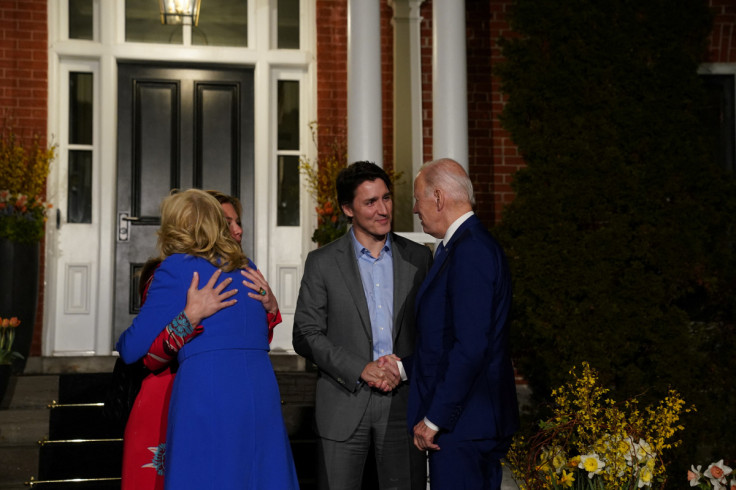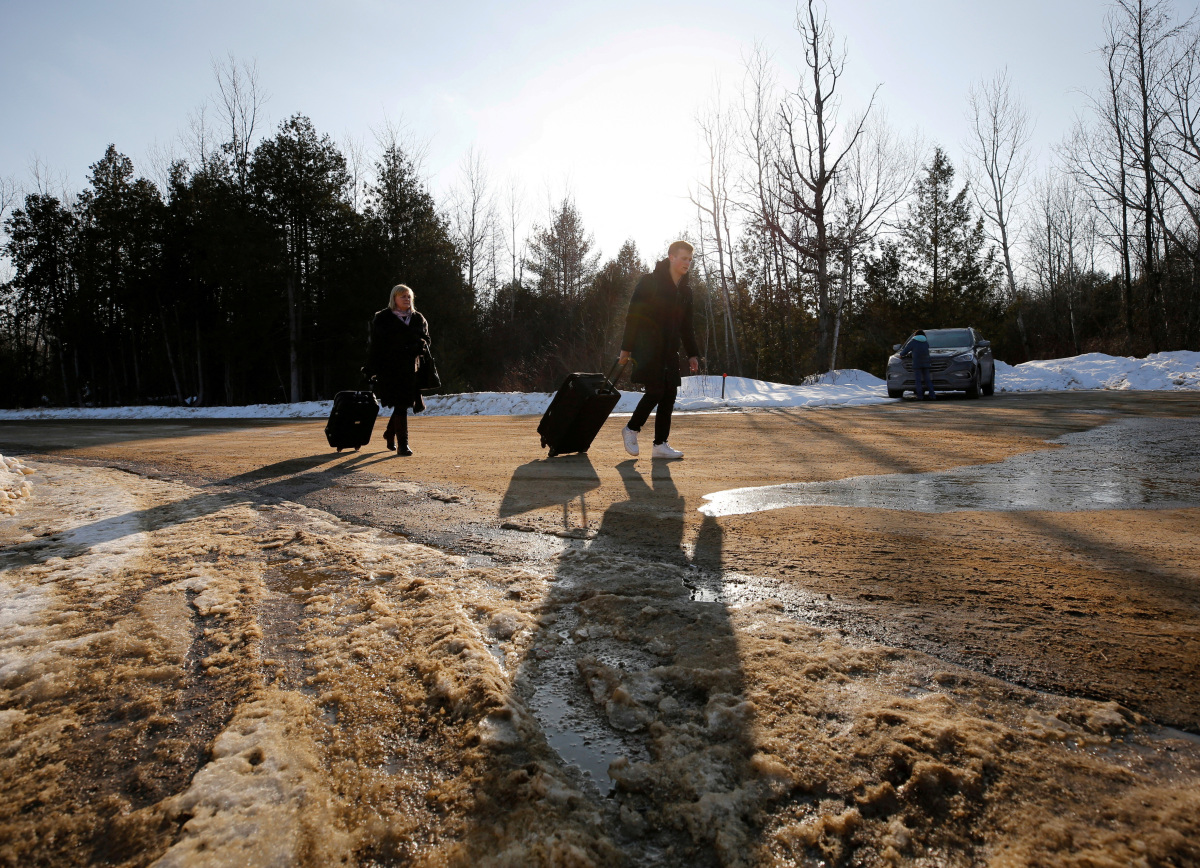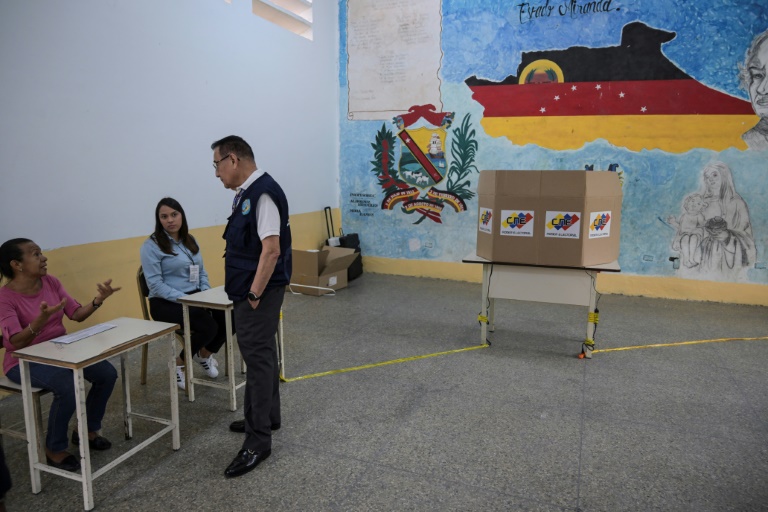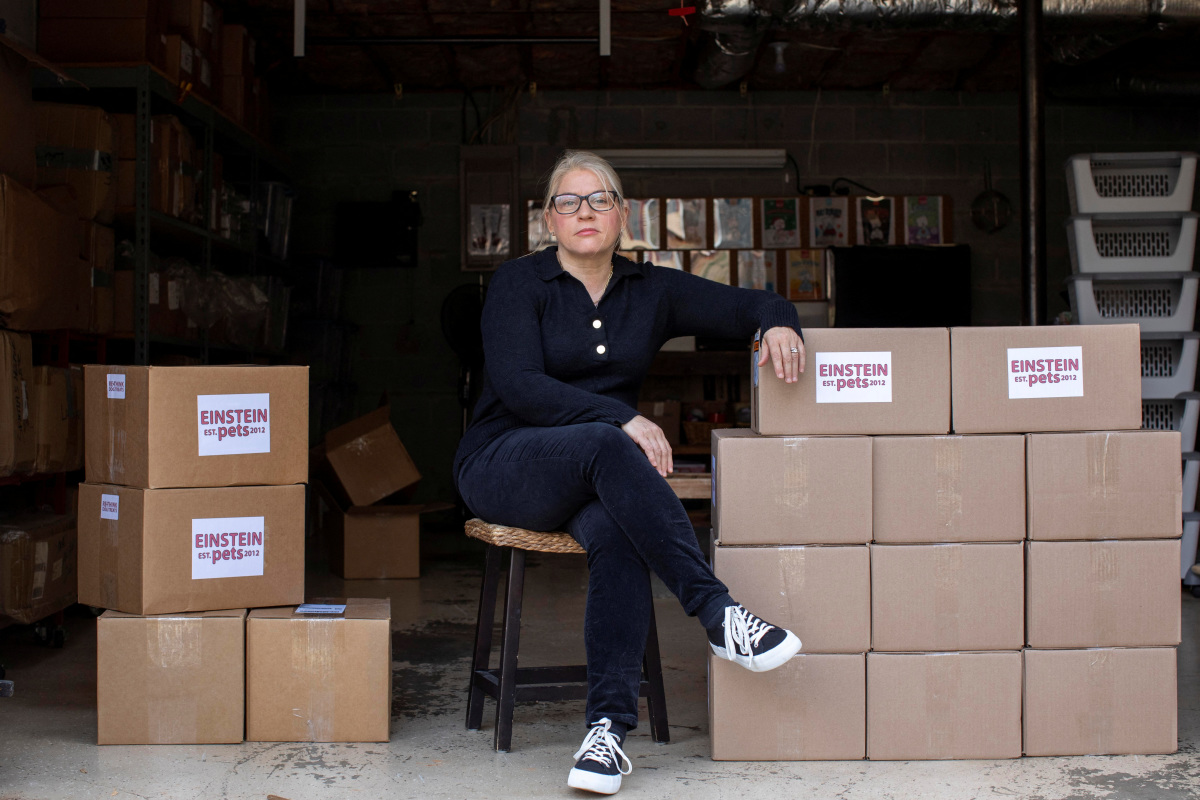Reuters
U.S. President Joe Biden and Canadian Prime Minister Justin Trudeau are poised to announce a deal on Friday aimed at stopping asylum seekers from traversing the shared U.S.-Canada land border via unofficial crossings.
The two leaders, in talks in Ottawa, are also expected to discuss how to address the worsening security and humanitarian situation in Haiti.
The migration deal, according to officials from both governments, will allow Canada to turn back immigrants at Roxham Road, an unofficial crossing point from New York state for migrants seeking asylum in Canada.
Trudeau has been under pressure to stop the flow of asylum seekers in Quebec, the mainly French-speaking province where he holds his parliamentary seat.
As part of the agreement, Canada will take in an additional 15,000 migrants over the next year on a humanitarian basis from the Western Hemisphere, a U.S. official said.
Biden arrived in Canada on Thursday on his long-delayed visit to express unity on Ukraine. He will address parliament on Friday with Trudeau and the two leaders will hold a joint news conference.
Border crossings between the two countries are governed by the Safe Third Country Agreement, which allows U.S. and Canadian officials to turn back asylum seekers in both directions at formal points of entry, but does not apply to unofficial crossings like Quebec’s Roxham Road.
Roxham Road, a dirt path that has become a route of choice for asylum-seekers, made international headlines in 2017 soon after former U.S. President Donald Trump started to crack down on migrants, resulting in a huge inflow of asylum seekers into Canada.
U.S. and Canada share the longest land border in North America and the new agreement would expand the pact so that it applies to the entire length and asylum seekers apprehended using unofficial crossings will be turned back.
Canada has been pushing the U.S. to extend the deal for a while. In recent months, there has been a sharp increase in asylum seekers entering Canada through unofficial border crossings.
Speaking with reporters on Wednesday, Trudeau said the U.S. and Canadian governments had been working to resolve the “complex” issue of irregular border crossings for many months and that he hoped to make an announcement about it soon.

Reuters







